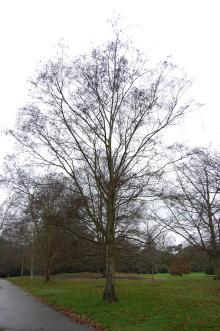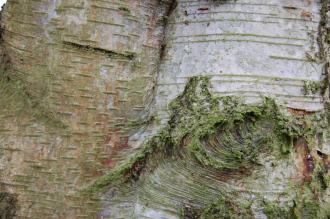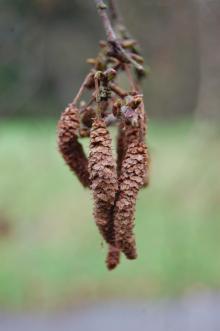
Betula pubescens (09/02/2013, Kew Gardens, London)
Position: Full sun to partial shade
Flowering period: Spring
Soil: Moist, well drained
Eventual Height: 20m
Eventual Spread: 10m
Hardiness: 1 – 9a
Family: Betulaceae
Betula pubescens is a fast growing deciduous tree with an upright slender habit. Its mid green leaves are ovate with surrulate margins, up to 5cm long and 4.5cm broad. Its leaves turn yellow before they fall in autumn. Its trunk may achieve a diameter of up to 70cm. Its smooth bark is dull white/ gray with horizontal lenticels. Its monoecious flowers are in the form of catkins, are wind pollinated and appear before its leaves. Its fruit is a cylindrical aggregate, up to 4cm long and it disintegrates upon maturity.
Betula pubescens, commonly known as Downy Birch, White Birch, Hairy Birch or Moor Birch, is native to north Europe (including the UK), north Asia and Greenland. This tree is the most northerly growing broad leaf tree of any tree species. This tree is a pioneer species.

Betula pubescens Bark (09/02/2013, Kew Gardens, London)
The etymological root of the binomial name Betula is the old Latin name for the Birch tree. Pubescens is derived from the Latin pubes meaning ‘hair’ and the epithet -escens meaning ‘-ish’, in reference to its downy shoots.
The landscape architect may find Betula pubescens useful as part of a native woodland planting scheme. It can be included in a woodland mix as a nursery crop to provided shelter for the slower growing species which will eventually shade out this species.

Betula pubescens Seed (09/02/2013, Kew Gardens, London)
Ecologically, Betula pubescens provides a valuable source of pollen for insects.
Betula pubescens prefers moist, well-drained soils. It tolerates most pH of soil, including very acidic. It will tolerate poor and wet soils.
Betula pubescens requires little maintenance.

